How to care for newborn kittens
Sometimes it happens that a mother cat cannot take care of her kittens.
It is good if there is a cat who will take care of the kids and save the owner from problems. However, you often have to take on the role of a mother.
What you need to care for kittens
For the first month of life, newborn kittens will need:
- A box that will serve as the basis for the house;
- Disposable diapers according to the size of the box;
- Heating pad or small bottle;
- Pieces of cloth, rags or cotton pads;
- Mix for feeding kittens;
- Nipples and feeding bottles.
Such a set will help toddlers to go out without difficulty.
or such a house, you need a small box.
Place absorbent mats on the bottom of the box - disposable diapers from a pet store or baby store will do. Change diapers as you get dirty. Place fabric on the sides to make the kittens feel more comfortable.
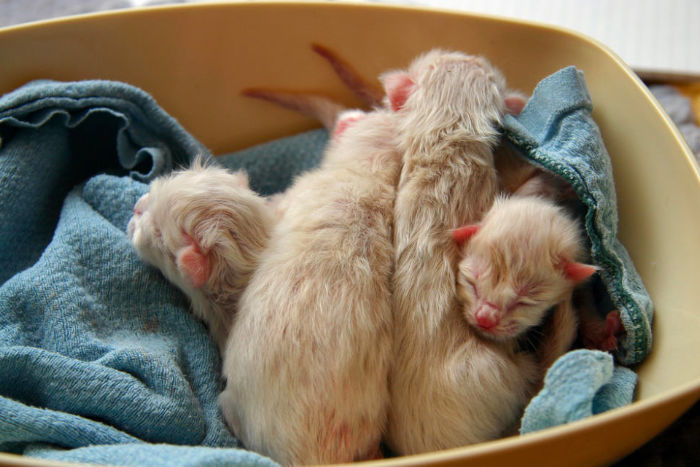
To keep the kittens from freezing, put a heating pad wrapped in a cloth in the nest. If you don't have a heating pad, use a warm water bottle instead. Renew the heating pad so that the kittens' house stays warm.
Place the house in a dark place, as it is too early for babies to strain their eyes with light. When doing this, leave the box open to allow air to enter.
Make sure that there are no drafts or temperature changes near the kitten's house - it should be warm in the nest. Try to maintain a temperature of 30 degrees during the first month of kittens' life.
Care features
Remember that newborn kittens are very fragile - wrap the kitten in a towel if you want to take it.
A mother cat licks small kittens not only for the sake of hygiene: babies still do not know how to go to the toilet on their own, and with this they will have to help a little.
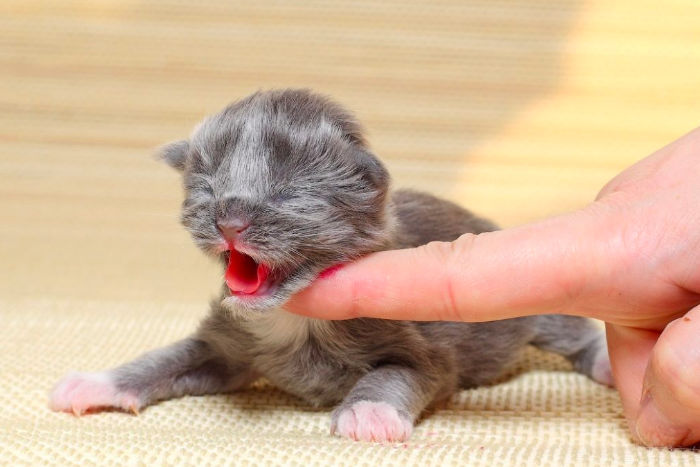
After each feeding, take a rag and rub the kitten's tummy with light movements. Also massage under the ponytail. Continue until the baby has gone to the toilet. Feces appear in kittens from 3-4 days of life - before that, only a clear liquid will be released.
From 3-4 weeks, kittens will learn to defecate on their own.
Normally, kittens urinate after each meal, bowel movements occur 3-4 times a day.
In addition, each kitten needs to be brushed daily. Wipe the whole kittens with a soft, damp cloth or cotton pad.
To make kittens feel loved, babies need to be gently stroked with a finger or a cloth. The cloth creates the illusion that the kitten is being licked by the mother.
How to feed newborn kittens
Forget the idea of feeding the kittens with cow or goat milk - the composition of such milk does not meet the needs of the kittens. These types of milk contain less lactose, protein and fat, which will lead to problems in the development of kittens.
To feed small kittens, buy special kitten milk replacers - they are called so in pet stores. Dilution instructions for the mixture are indicated on the packaging.
You will also need special nipples and feeding bottles - some manufacturers apply them to formula. If they are not in the mixture, buy them at the pet store.
It is important to hold the kitten correctly when feeding - a newborn kitten should lie on its back with its head slightly raised. The baby will begin to suck on the nipple instinctively - while making sure that he does not throw his head back and choke.
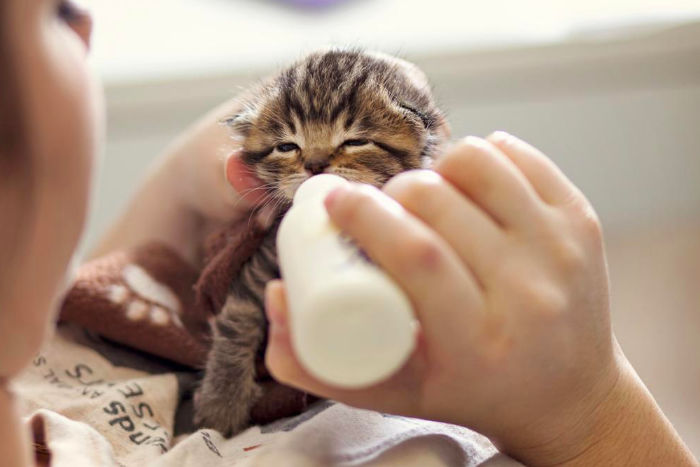
If the kitten is coughing, remove the nipple, turn the kitten head down and let him catch his breath. Older kittens will fit the bottle themselves.
When the baby began to fall asleep during feeding or milk bubbles began to flow from his mouth, he was full. Gently wipe his face and put him to bed.
Babies eat 2-4 milliliters of the mixture at a time every 2-3 hours. It is important to stick to a feeding schedule both day and night until the kittens are 3 weeks old. From the fourth week of life, kittens are fed only during the day.
| Age | Number of feedings | Mix volume |
|---|---|---|
| 1 Week | 7 | 2-5 ml |
| 2 weeks | 6 | 5-10 ml |
| 3 weeks | five | 10-15 ml |
| 4 weeks | five | 10-20 ml |
| 5 weeks | 4 | 10-25 ml |
| 6 weeks | 4 | 10-25 ml |
Formula feeding can be continued for up to 6 weeks, but kittens should be gradually introduced into the diet from one month of age. At the same time, food for adult cats will not work - choose types of food with a special label "for kittens".
You can determine whether kittens eat well by their behavior: well-fed babies sleep peacefully, and hungry babies squeak and suck the finger extended to them.
What a mother-owner needs to know
It is important to monitor the dynamics of the weight of the babies. If the weight gradually increases, then the care of the kittens is correct and the babies are growing well. The weight of kittens by age is shown in the table below.
| Kitten age | Normal kitten weight | Large breed kitten weight |
|---|---|---|
| Newborn | 60-140 g | 120-160 g |
| 1 Week | 110-250 g | 200-260 g |
| 2 week | 150-360 g | 300-380 g |
| 3 week | 210-420 g | 440-600 g |
| 4 week | 350-600 g | 630-750 g |
| 2 months | 0.6-1.0 kg | 1.2-1.5 kg |
If it seems to you that the kittens look sick, the discharge is strange, the kittens do not want to eat, or they scream after feeding, contact your veterinarian immediately. Health problems of kittens can be eliminated in the early stages - the main thing is to closely monitor the behavior of the babies.
Limit visiting and contact of kittens with other animals and children. Careless handling of a kitten can end in disaster.
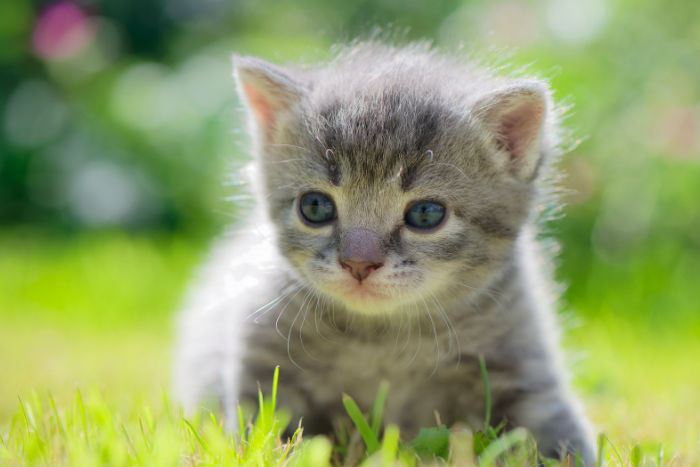
Do not bathe kittens - at this age it is completely unnecessary. When bathing a kitten, you can accidentally overcool, overheat or pour water into the ears. Better to wipe the kitten with a rag or damp cloth.
Over time, the kittens you raise learn your scent. In the future, kittens may consider the owner a mother, which will help in raising.
As you can see, it is not difficult to save kittens without a mother - the main thing is to have patience and love!


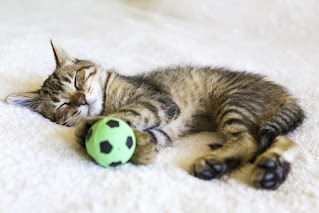
Comments
Post a Comment